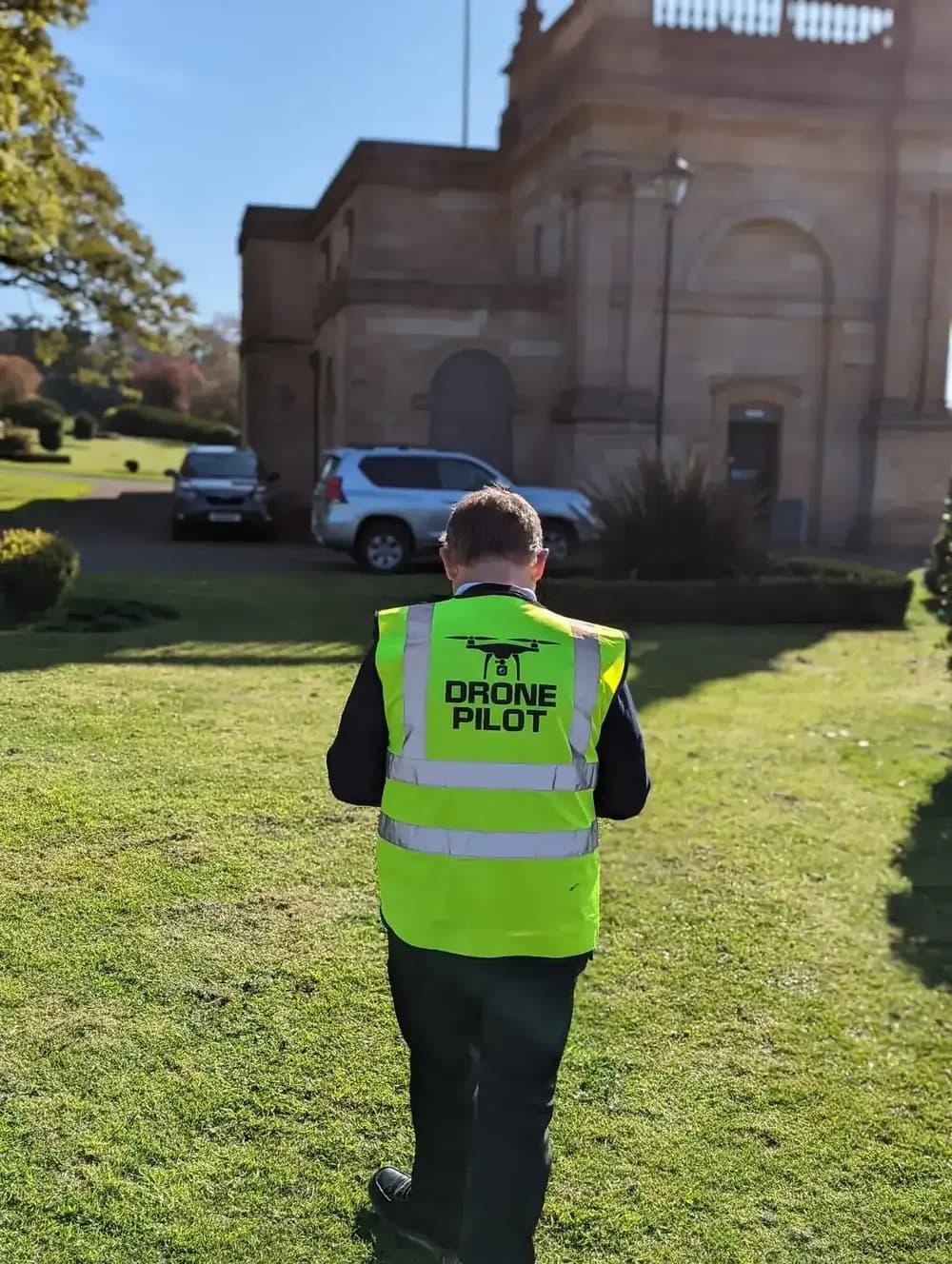
The truth is, in today's incredibly crowded UK drone market, many new drone pilots are struggling to make even £10,000 a year.
However, the specialists I work alongside as a GVC-licensed drone operator are still comfortably clearing £50,000 by avoiding the low-end price wars. The industry is now saturated with drone operators undercutting each other on basic £400-a-day real estate jobs.
Meanwhile, a massive skills gap remains for drone pilots with technical certifications like thermography or an OSC, where clients happily pay a premium for hard data, not just pretty pictures.
Whether you're aiming for a stable in-house position or trying to build a profitable freelance business, this guide provides an insider's view on how to navigate a crowded field and focus on the most lucrative parts of the industry in 2025.
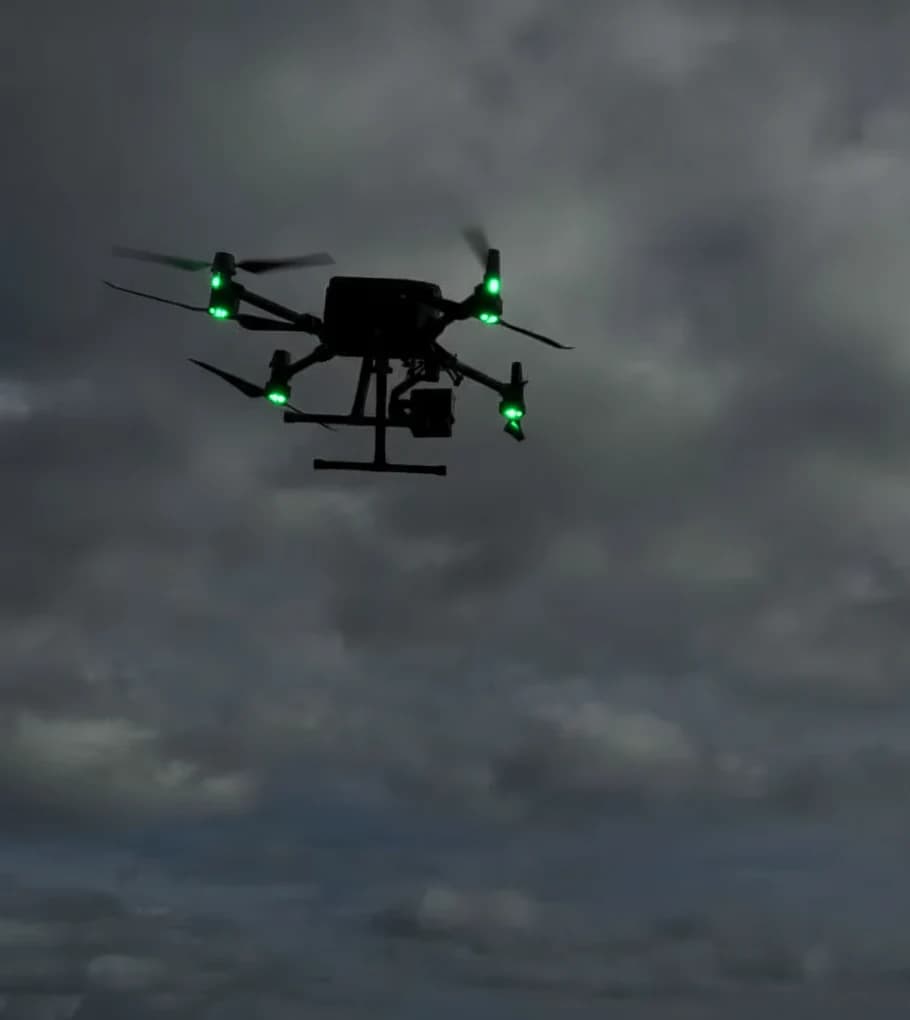
30 Second Summary
- Full-time drone pilots in the UK have a typical drone pilot salary of £30,000-£45,000 annually, with these roles becoming more competitive as companies build in-house teams.
- Freelance drone pilots charge £50-£400 per hour, but increasing competition is driving down rates for non-specialized work.
- Specialized drone services in technical fields remain lucrative, commanding premium rates of £300-£400 hourly.
- Experienced drone pilots with advanced certifications can still earn over £50,000 annually or £1,500 daily as freelancers by targeting high-value niches.
- Seasonal fluctuations affect earnings, with winter now being a particularly challenging time for freelancers in a saturated market.
UK Drone Pilot Salary at a Glance
Role / Experience Level | Employment Type | Typical Pay Scale |
|---|---|---|
Entry-Level Drone Pilot | Full-Time (Annual) | £30,000 – £35,000 |
Experienced Drone Pilot | Full-Time (Annual) | £35,000 – £45,000 |
Senior / Specialist Drone Pilot | Full-Time (Annual) | £45,000 – £50,000+ |
General Freelance Work | Freelance (Day Rate) | £400 – £800 |
Specialist Freelance Work | Freelance (Day Rate) | £1,000 – £1,500+ |
Technical Inspections/Mapping | Freelance (Hourly) | £300 – £400+ |
Full-time UK drone pilots typically earn £30,000–£45,000 per year, with senior or specialist roles exceeding £50,000
When entering the drone industry in the UK, you'll find that full-time drone pilots typically command annual salaries ranging from £30,000 to £45,000.
From my perspective, with the freelance market becoming so oversaturated, these in-house roles are now golden opportunities. The stability, paid holidays, and lack of business overheads are a huge advantage as more large companies decide to build their own drone teams rather than hiring externally.
If you're aiming higher, specialist roles offer greater earning potential. Drone pilots working in high-risk industries like oil and gas inspection, infrastructure survey, or advanced cinematography can earn upwards of £50,000 annually. These premium rates reward the additional technical skills and specialized training required.
Who Hires Full-Time Drone Pilots?
You'll often find full-time positions at larger corporations in sectors like energy, construction, and media. The trend for 2025 is a major shift away from hiring freelancers towards building dedicated internal drone programs.
Companies are realizing that for regular, mission-critical tasks, an in-house team is more cost-effective and secure. They want drone pilots who are not just temporary contractors but are deeply integrated into the company's workflows, data systems, and safety culture.
This means they are looking for candidates who understand corporate structures and can work as part of a larger project team, offering consistent, reliable data collection that aligns with long-term business goals.
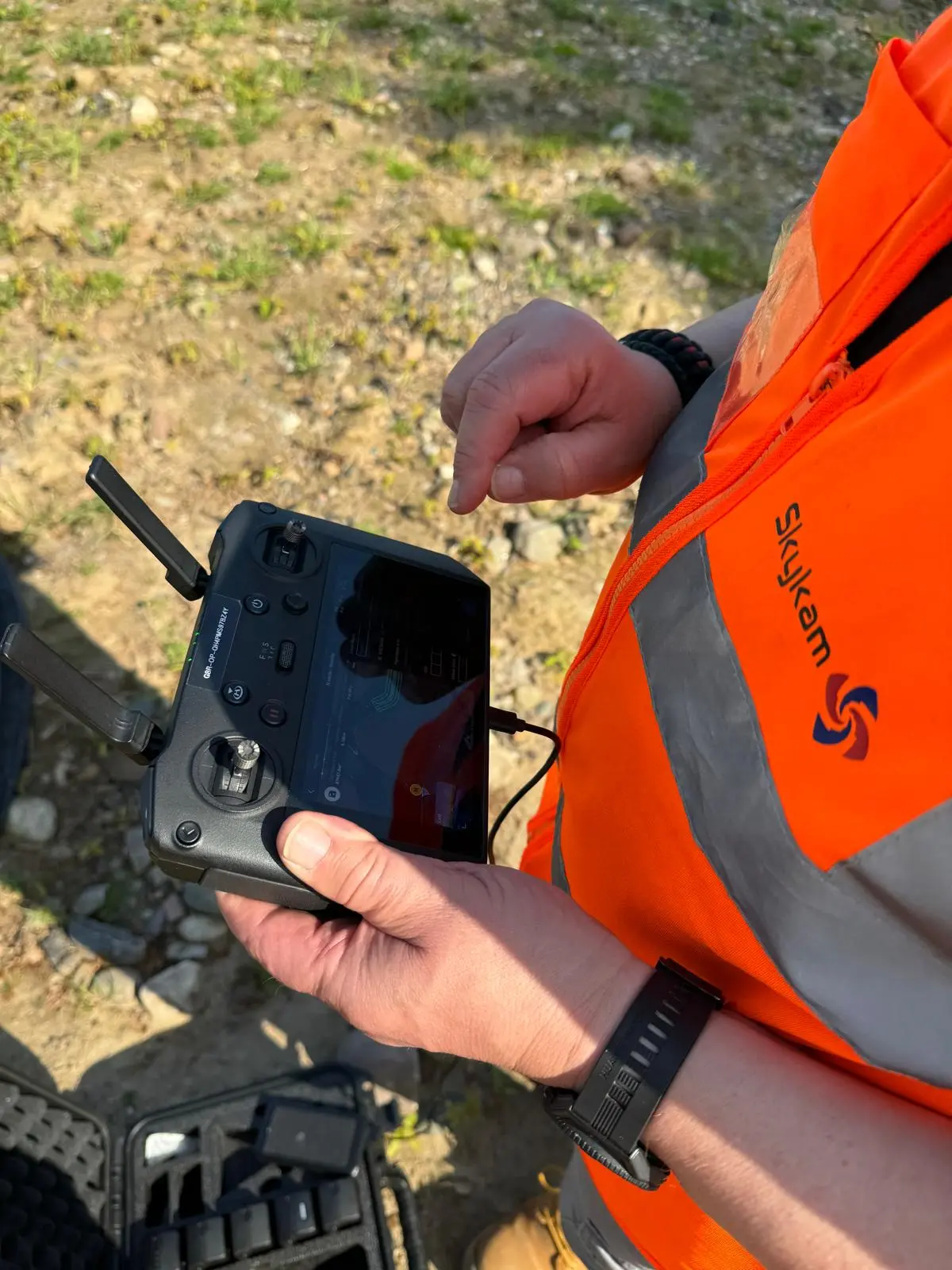
Freelance drone pilots in the UK charge £50–£400 per hour or £400–£1,500 per day, depending on project scope and expertise
Freelance drone pilots typically operate with a more variable pricing structure, but the key challenge today is the sheer number of certified drone operators.
You'll find hundreds of operators competing for the same jobs, which has put serious downward pressure on rates for general aerial photography. Simple drone real estate photography is now a battlefield of undercutting.
Your expertise level significantly impacts what you can charge. While beginners are forced to accept lower rates to get a foothold, established drone pilots with specialized skills can still command a premium.
Factoring in Freelance Overheads
When setting your freelance rates, you have to be more disciplined than ever.
The biggest mistake I see new drone pilots making in 2025 is undercutting the competition without understanding their own costs. They see a £300 day rate as pure profit, forgetting their insurance, software subscriptions, and fuel. It's a race to the bottom that's hurting the whole industry.
Your rates must cover these costs to run a sustainable business.
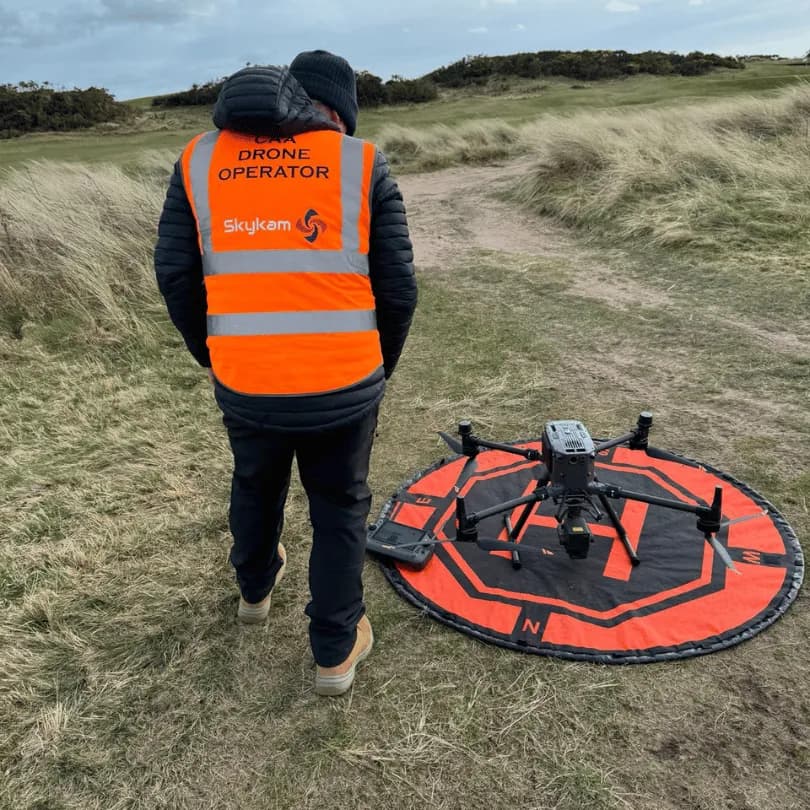
Specialised drone services, such as inspections or mapping, can command £300–£400 per hour, often exceeding £1,000 per day
The specialized drone services market is now the only safe harbour for high-earning freelancers. While the market for "pretty pictures" is saturated, the demand for hard data is growing.
When you're qualified to perform infrastructure inspections, thermal imaging, or precision agriculture mapping, you escape the low-end competition.
Investing in a thermal camera for my drone was a significant upfront cost, but it completely changed my business. It opened up a client base that isn't looking for the cheapest drone pilot, but the most qualified one.
These services demand additional certifications and equipment, but they allow you to deliver tangible value—like detailed photogrammetric mapping or accurate thermal reports—that clients will pay a premium for.
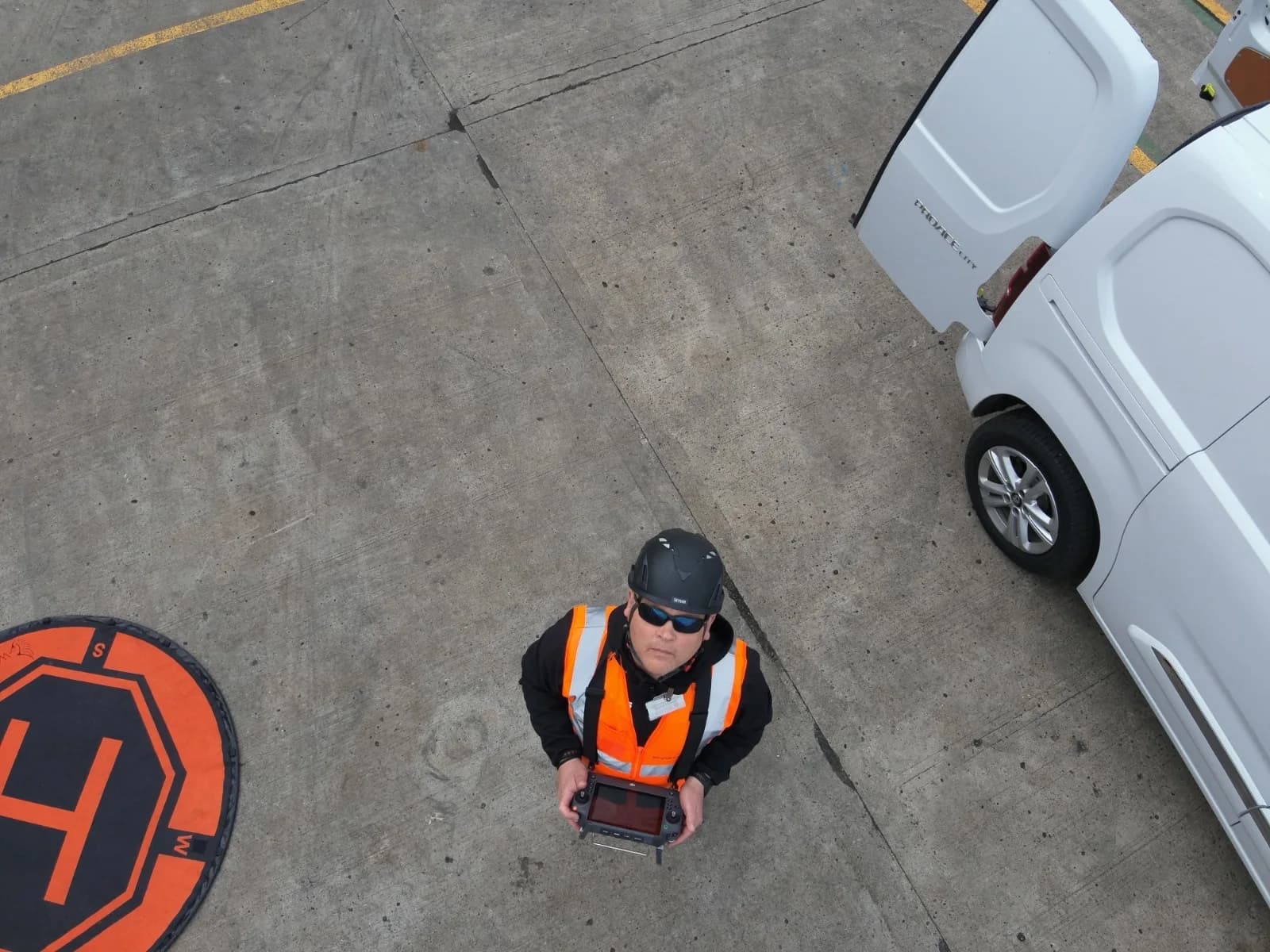
Experience and advanced certifications can push earnings above £50,000 annually for full-time drone pilots and £1,500 per day for freelancers
A career progression from entry-level to expert drone pilot can dramatically transform your earning potential. As you accumulate flight hours and project experience, your market value increases substantially.
Freelancers with specialized expertise and proven track records can command premium rates. This is how you survive the market saturation—by offering a skill so valuable that clients seek you out specifically.
Key Certifications for Higher Earnings
To access top-tier salaries, focusing on drone qualifications beyond the basic GVC is no longer optional—it's essential.
Certifications like an Operations Safety Case (OSC), thermography (e.g., ITC Level 1), or specific training for drone mapping (like Pix4D) make you a far more valuable candidate. In my case, it was my thermography certification that allowed me to sidestep the price wars completely.
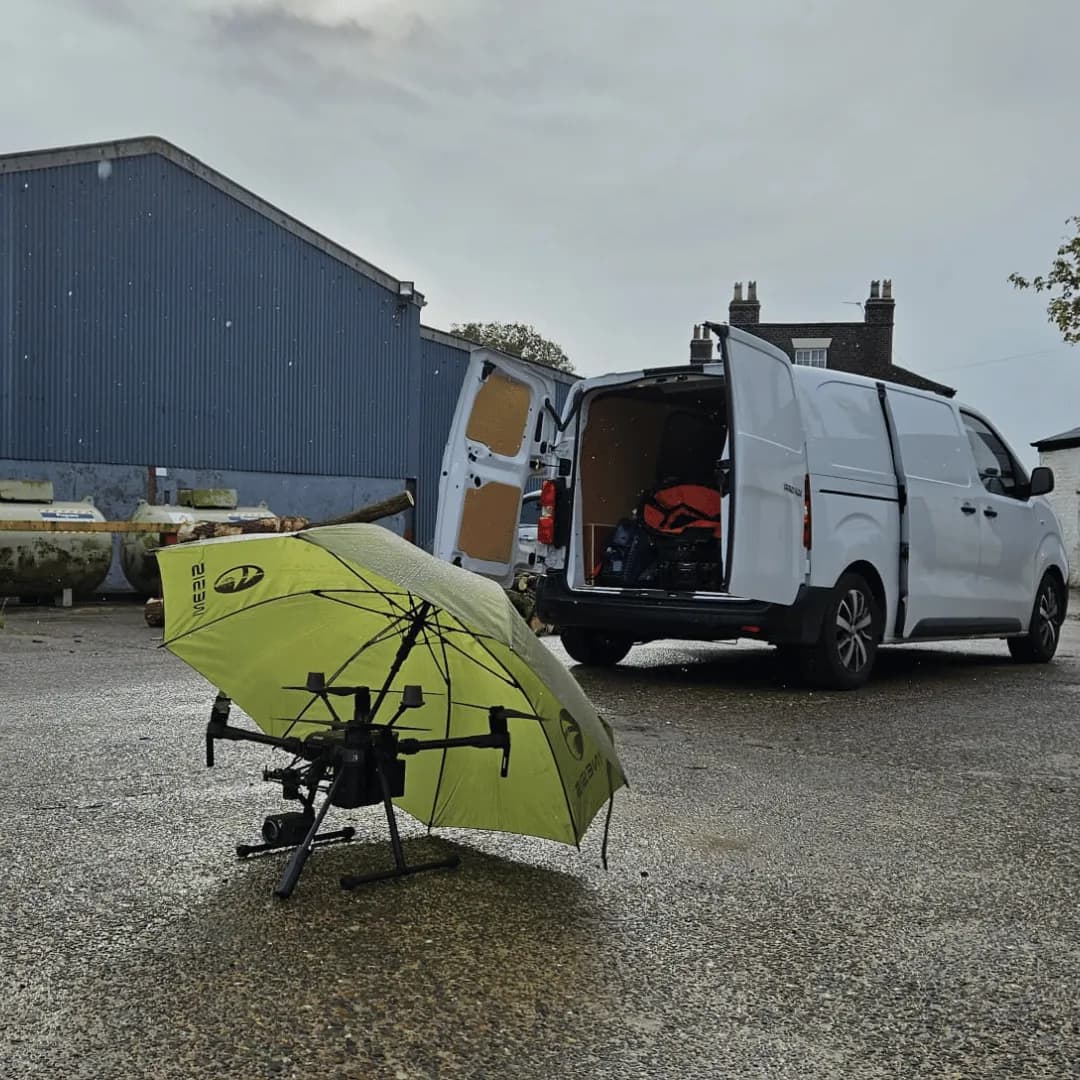
Building Your Drone Pilot Career: Portfolio and Networking
Getting certified is just the first step. In this crowded market, you need a strategy to stand out.
Create a Professional Portfolio
A generic portfolio of landscape shots won't cut it anymore. My advice is to build a portfolio that screams "specialist."
If you want to work in construction, show that you understand the workflow with examples of site mapping and progress monitoring. A stunning video is nice, but a portfolio that solves a specific business problem is what gets you hired in 2025.
Find Your Niche
While it’s tempting to be a generalist, the generalist drone pilot is struggling. I found my footing in construction site progression. It's not as glamorous as film work, but the contracts are regular, and clients value reliability.
In a saturated market, becoming the "go-to" person for a specific, in-demand niche is the best strategy for success.
Network with Industry Professionals
Connect with people in your target industries. With so many freelancers bidding for work online, I've found that my best contracts come from direct relationships.
A single conversation at a trade show is more valuable than a hundred online applications. Building these relationships helps you find the high-value jobs that aren't being advertised to the masses.
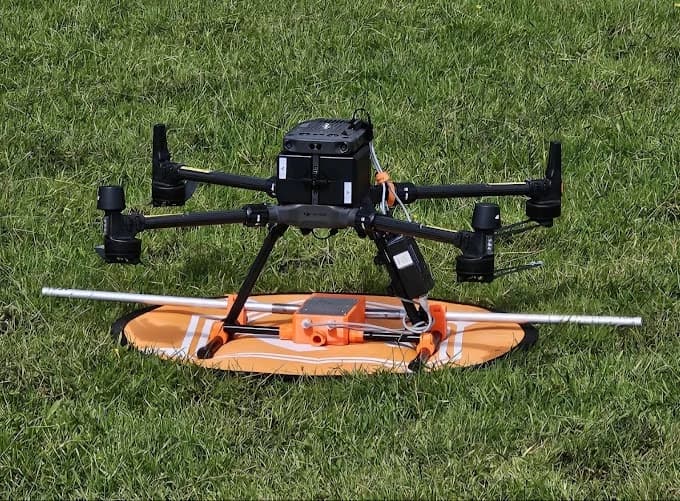
Drone pilot income can fluctuate seasonally, with summer months bringing higher demand and rates closer to the top end of the £400 per hour range.
Most drone pilots experience seasonal fluctuations, and the winter downtime can be brutal in a saturated market.
I've learned to love the winter months for post-production work and training. It's the perfect time to upskill, service my equipment, and study for another certification. This is how you get ahead of the competition, ensuring you have new, valuable services to offer when the busy season returns.
The Future of Drone Piloting in the UK
The role of a drone pilot is evolving rapidly. With the market for general drone photography and real estate work effectively gone, the future is entirely in technical data specialization.
Staying ahead of these trends is the only way to maintain a long-term career.
The Rise of BVLOS Operations
Beyond Visual Line of Sight (BVLOS) flying is the next frontier. For those of us looking to escape the overcrowded standard market, this is a key area of focus.
It's a complex, highly regulated field that requires significant investment in training and equipment, ensuring it won't be saturated anytime soon. Drone pilots who gain BVLOS qualifications will be in an entirely new league.
Automation and AI Integration
From where I'm standing, the future is less about manual piloting and more about managing autonomous systems to gather technical data.
Companies aren't looking for someone to take photos anymore; they want data experts who can plan complex missions and use AI to interpret the results. This is the skill set that future-proofs your career, while drone pilots stuck in the photography mindset will be left behind.
Growth in New Sectors
While the traditional drone markets are overcrowded, new technical opportunities are constantly emerging.
Watch for growth in public safety, emergency services, and logistics (like drone delivery). These fields require highly skilled, data-focused drone operators who can pass rigorous vetting—not generalist photographers.
Frequently Asked Questions
What Qualifications Do I Need to Become a Drone Pilot?
You'll need a GVC or A2 CofC to operate commercially. But in today's market, that's the bare minimum. I strongly recommend additional pilot certifications in a specialty like mapping or inspection to stand out.
How Long Does It Take to Start Earning as a Drone Pilot?
You can start earning within 1-3 months, but building a sustainable income is harder now and can easily take over a year. You're not just building a client base; you're building a reputation as a specialist.
Are Drone Pilot Jobs Growing or Declining in the UK?
The number of jobs is still growing, but the drone pilot demand is being outpaced by the number of certified drone pilots. This has created intense competition, especially for entry-level and generalist freelance roles. The growth is in specialized, high-skill areas.
Which Industries Hire the Most Drone Pilots?
Construction, real estate, agriculture, and filmmaking are still the biggest employers. However, many larger construction and media companies are now hiring full-time drone pilots to build their own internal teams.
What Insurance Do Drone Pilots Need in the UK?
Public liability insurance is a legal requirement. You'll also need equipment insurance and professional indemnity insurance, especially if you're providing data analysis or reports. The specific drone insurance requirements can vary.
What are the biggest challenges facing drone pilots in the UK?
For 2025, the biggest challenges are market saturation and the resulting price undercutting from new freelancers. Other major hurdles include the high initial equipment costs and keeping up with the rapidly evolving CAA regulations.
Ready to Hire a Vetted Specialist?
The UK drone industry in 2025 presents a clear divide: intense competition for general photography versus high demand for technical data specialists. For businesses, this crowded market makes it a challenge to find a truly qualified certified drone pilot with the specific skills needed for a critical inspection or survey.
This is the exact problem HireDronePilot was built to solve.
As the UK's premier managed marketplace, we focus on connecting businesses with verified professional drone pilots for hire, whose expertise in high-value areas like drone thermal imaging and drone surveys has been vetted. We streamline drone services through competitive bidding, ensuring quality, compliance, and value for every aerial project across the United Kingdom.
Whether you need a certified data expert for a complex project or you're a specialist drone pilot seeking high-value work, bypass the saturated market. Post your project with HireDronePilot today to connect with the right professional.
About the Author

Written by
Peter Leslie
Peter Leslie is a CAA-approved commercial drone pilot with 10+ years experience and over 10,000 flight hours. He holds the GVC and A2 CofC drone licences with full CAA Operational Authorisation. Peter is a member of ARPAS-UK, the UK's non-profit trade association for the drone industry. He founded HireDronePilot to connect UK businesses with qualified, insured drone operators.
Looking for More Drone Work?
Join the UK's leading network of professional drone pilots and grow your business.
Open Access
Bid on any job - all jobs open to all pilots
Grow Revenue
Access high-value commercial projects
Stay Busy
Fill your schedule with regular work
Related Articles
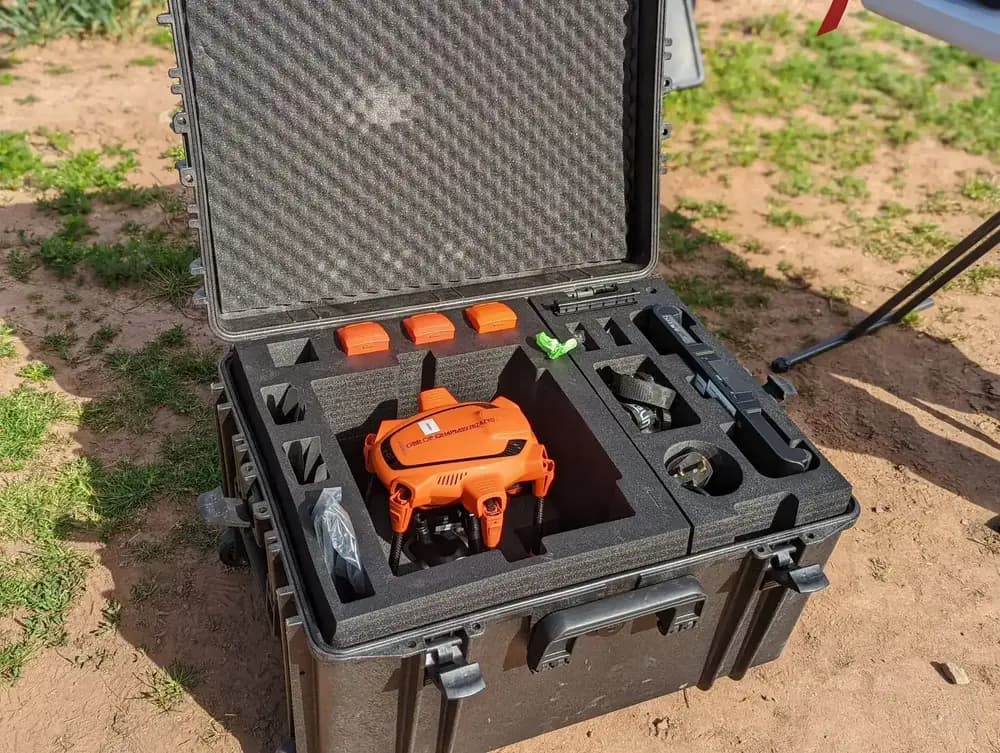
Our Drone Survey Service In Stirling, Scotland
Bringing you Stirling drone survey data from areas no one else can fly.

How Much Does A Drone LiDAR Survey Cost
Forecasting your drone LiDAR survey cost requires understanding what's hidden beyond the initial quote.
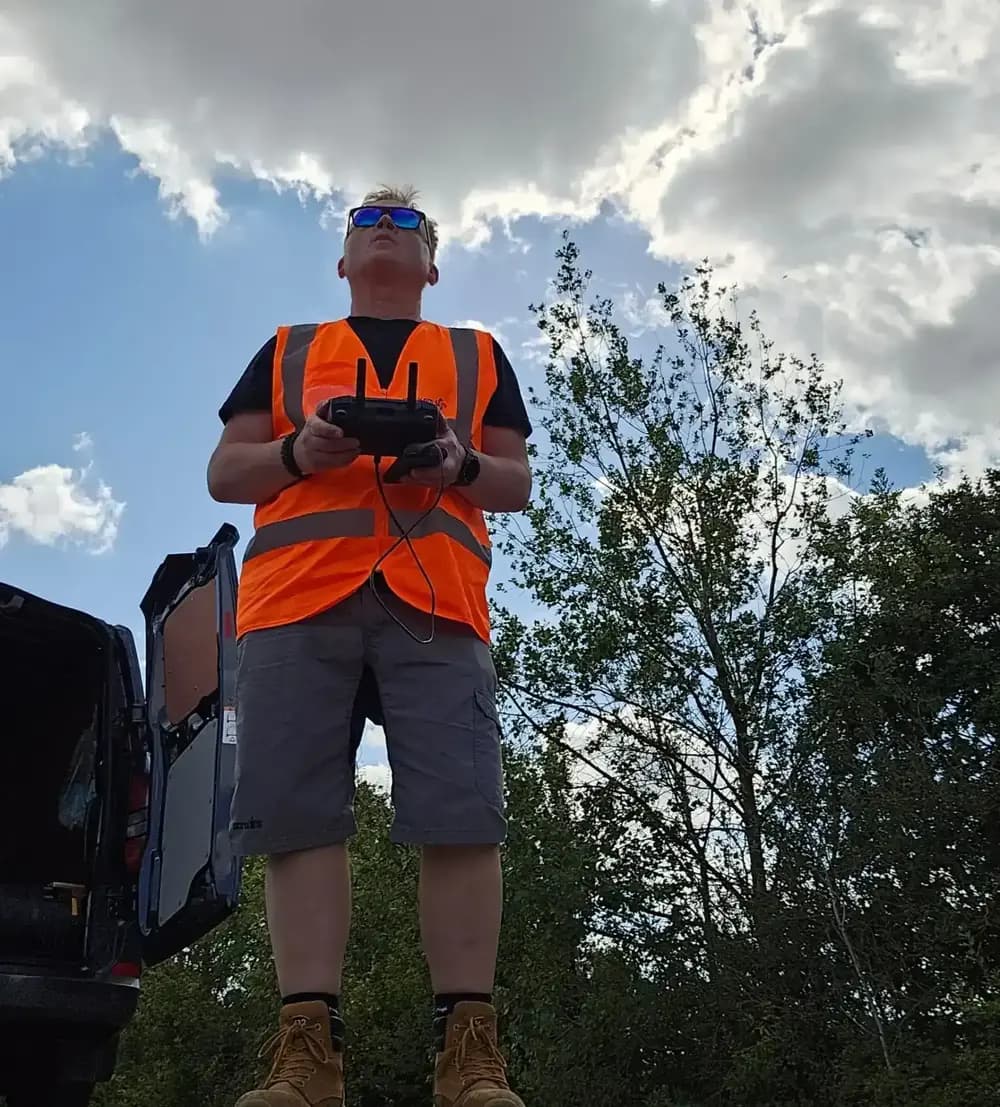
Step By Step Process Of Drone LiDAR Survey
Next, discover the crucial post-flight steps that determine your survey's success.
